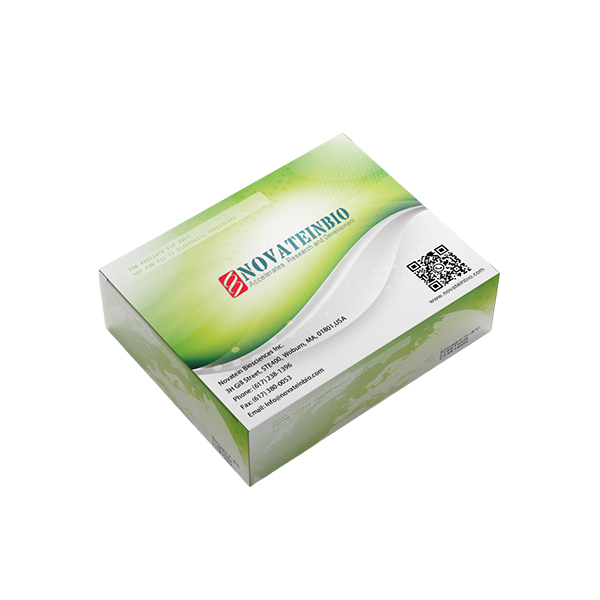Food safety is a growing global concern, and the demand for reliable testing methods continues to rise. Among the various technologies available, ELISA kits for food safety testing stand out for their accuracy, sensitivity, and ease of use. In this ultimate guide, we’ll explore how ELISA kits are transforming food safety testing, why they're trusted by professionals, and how companies like Novatein Biosciences Inc. are supporting laboratories and industries with high-quality ELISA solutions.
1. What Is ELISA and Why Is It Important in Food Safety Testing?
ELISA (Enzyme-Linked Immunosorbent Assay) is a powerful biochemical technique used to detect the presence of specific substances such as allergens, toxins, hormones, and pathogens in food samples. Its importance in food safety testing lies in its ability to provide quantitative, reproducible results that help ensure compliance with regulatory standards.
Contaminants like gluten, peanut proteins, antibiotics, or microbial toxins can be harmful even in trace amounts. ELISA kits offer a practical solution for identifying these substances quickly and accurately.

2. How ELISA Kits Work: A Simple Overview
ELISA relies on the specific binding between an antigen (target molecule in food) and an antibody. Here’s a simplified explanation of the process:
A food sample is prepared and added to a microplate.
If the target contaminant is present, it binds to the coated antibody.
A secondary antibody with an enzyme is added to form a complex.
A substrate is introduced, producing a color change that correlates with the contaminant level.
The intensity of the color is measured using a spectrophotometer.
This method allows for both qualitative and quantitative analysis, making it ideal for food testing labs of all sizes.
3. Key Applications of ELISA Kits in Food Testing
ELISA kits are used extensively across the food industry. Common applications include:
Allergen detection: such as gluten, milk, soy, nuts, and shellfish.
Toxin identification: like aflatoxins and mycotoxins.
Antibiotic residue testing: for detecting illegal or excessive antibiotic use in livestock.
Hormone monitoring: particularly in dairy and meat products.
Microbial analysis: targeting bacteria such as Salmonella, Listeria, and E. coli.
By incorporating ELISA kits for food safety testing, manufacturers can ensure consumer protection and avoid costly recalls.
4. Why Choose Novatein Biosciences ELISA Kits?
Based in the United States, Novatein Biosciences Inc. has built a strong reputation as a trusted supplier of life science reagents. The company provides:
A wide range of ELISA kits for food safety and clinical diagnostics.
Recombinant proteins, monoclonal and polyclonal antibodies, and ELISA chips.
Customized solutions and access to kits from other premium global suppliers.
What sets Novatein apart is its emphasis on quality control, product validation, and responsive customer service. Whether you're managing a large lab or running small-scale food testing, Novatein’s kits are designed for reliability and efficiency.
5. Benefits of Using ELISA Kits for Food Safety Testing
Here’s why food safety professionals consistently choose ELISA:
High sensitivity and specificity: Able to detect very low levels of contaminants.
Fast turnaround time: Results available within hours.
Cost-effective: No need for expensive equipment like in PCR or LC-MS.
Scalable: Suitable for both routine screening and large-volume testing.
Regulatory compliance: Helps meet FDA, USDA, and international food safety standards.
For industries that require routine monitoring, ELISA kits provide the ideal combination of accuracy, speed, and affordability.
6. How to Select the Right ELISA Kit for Your Application
Not all ELISA kits are created equal. Consider these factors when selecting a kit:
Target analyte: Know exactly what contaminant or allergen you're testing for.
Matrix compatibility: Ensure the kit is validated for your food sample type (milk, meat, grain, etc.).
Sensitivity range: Choose kits with detection limits that align with your regulatory needs.
Shelf life and storage: Look for kits with stable reagents and clear instructions.
Support and documentation: Opt for suppliers like Novatein Biosciences who provide technical datasheets, validation reports, and customer support.
7. Real-World Use Case: Allergen Detection in Snack Foods
A mid-sized snack food manufacturer wanted to ensure their nut-free product line truly met allergen-free standards. They turned to ELISA testing, using Novatein’s peanut ELISA kit. The kits enabled the quality control team to test each batch on-site and obtain results the same day. This proactive step not only prevented allergen contamination but also strengthened trust with their customers.
8. Final Thoughts: Why ELISA Kits Are a Must-Have in Food Safety Testing
In today’s food production landscape, testing for safety and quality is not optional—it’s essential. ELISA kits for food safety testing offer a proven, accessible, and cost-effective way to maintain product integrity and protect consumers.
With suppliers like Novatein Biosciences Inc. offering reliable kits and expert support, laboratories and food companies can confidently build robust testing programs. Whether you're detecting allergens, toxins, or residues, ELISA kits are the smart, scalable choice.
www.assaysolution.com
Novatein Biosciences Inc.